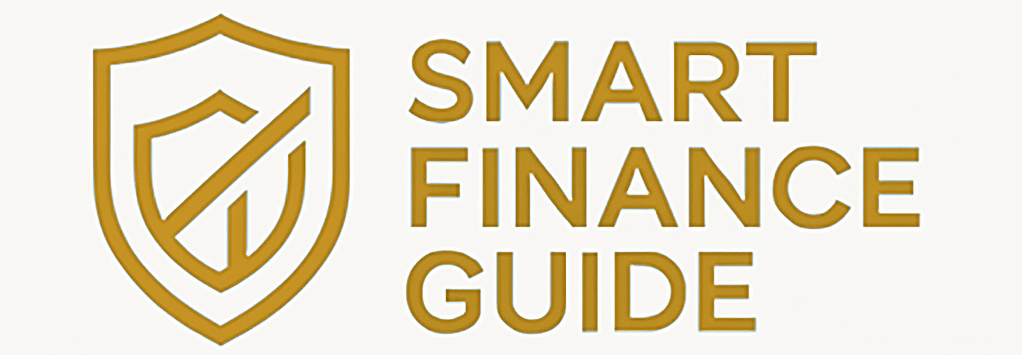If you’re just starting your investing journey, the sheer number of options can feel overwhelming. Index Funds for Beginners. Stocks, bonds, ETFs, and mutual funds all compete for your attention. But among all these choices, one investment vehicle has consistently proven itself to be simple, low-cost, and highly effective: index funds.
Index Funds for Beginners. Financial legends like Warren Buffett frequently recommend index funds as the best place for beginners to start. That’s because they combine diversification, low fees, and long-term growth potential into one easy-to-manage package.
In this guide, we’ll explore:
- What index funds are and how they work
- The key benefits they offer to beginners
- Different types of index funds
- How they compare to ETFs
- Step-by-step instructions to start investing
- Common myths and misconceptions
By the end, you’ll understand why index funds for beginners are one of the smartest financial moves you can make.
What Are Index Funds?
An index fund is a type of mutual fund or exchange-traded fund (ETF) that tracks the performance of a specific market index.
Instead of relying on fund managers to pick individual stocks or bonds, index funds aim to mirror the market by holding all (or a representative sample) of the securities in that index.
Examples include:
- S&P 500 index funds: Track the 500 largest U.S. companies
- Total market index funds: Provide exposure to nearly all U.S. publicly traded stocks
- Nasdaq index funds: Heavy on technology-driven companies
✅ Index Funds for Beginners. With one purchase, you gain instant diversification, exposure to hundreds or thousands of companies, and the ability to match overall market performance.
Alt text suggestion for image: “Illustration of index funds showing diversification across multiple companies and industries.”
How Do Index Funds Work?
Index funds are passively managed, which sets them apart from traditional actively managed mutual funds. Index Funds for Beginners. Here’s what that means:
- They track a chosen index automatically.
- The fund manager does not attempt to predict the market.
- Adjustments only occur when the underlying index changes.
Because of this passive strategy, index funds typically have:
- Lower costs (no expensive management teams making constant trades)
- Greater tax efficiency
- Performance that matches the market rather than trying to beat it
This approach is not only efficient but also proven to outperform most actively managed funds over the long run.
Key Benefits of Index Funds for Beginners
1. Low Cost
Index Funds for Beginners. One of the most attractive features of index funds is their extremely low fees.
- Typical expense ratio: 0.03%–0.10%
- Active mutual funds: Often above 1.00%
Over time, these cost savings make a massive difference. For example:
- A $10,000 investment growing at 7% annually for 30 years:
- With a 1% fee, you end with about $574,000
- With a 0.05% fee, you end with about $744,000
That’s nearly $170,000 more just by avoiding high fees. Index Funds for Beginners.
2. Diversification
By holding hundreds or even thousands of securities, index funds automatically reduce risk.
- If one company performs poorly, it has little effect on the overall fund.
- You gain exposure to multiple sectors such as technology, healthcare, finance, and energy.
✅ Diversification smooths returns and lowers volatility — perfect for beginners.
3. Consistent Performance
Studies consistently show that most actively managed funds fail to beat the market after fees. Index funds, however, match the market — and that often means better returns over time.
As Warren Buffett says: “A low-cost index fund is the most sensible equity investment for the great majority of investors.”
4. Simplicity
Investing doesn’t have to be complicated. Index funds make it easy:
- No need to research hundreds of individual stocks
- No pressure to time the market
- Just invest consistently and let the market work for you
5. Accessibility
Index funds are widely available. You can invest through:
- Brokerages (Vanguard, Fidelity, Schwab)
- Robo-advisors (Betterment, Wealthfront)
- Retirement accounts (401(k), IRA)
Some funds even have no minimum investment requirements, making them beginner-friendly.
See more, you might like: 8 Smart Steps to Set Financial Goals and Actually Reach Them.
Types of Index Funds
Index funds are not all the same. You can choose based on your goals and risk tolerance. Index Funds for Beginners.
U.S. Stock Index Funds
- S&P 500 funds: Focus on large-cap U.S. companies (e.g., VFIAX, FXAIX)
- Total market funds: Cover nearly the entire U.S. market (e.g., VTSAX, VTI)
- Dividend index funds: Target income-generating companies
International Index Funds
- Developed markets (Europe, Japan, Canada)
- Emerging markets (Brazil, India, China)
Bond Index Funds
- U.S. Treasuries
- Corporate bonds
- Short-, intermediate-, or long-term options
Sector Index Funds
- Technology, healthcare, real estate, energy, etc.
- Less diversified, but useful for targeted exposure
Alt text suggestion for image: “Table comparing types of index funds including U.S., international, bonds, and sectors.”
Index Funds vs. ETFs
Most index funds are available as either mutual funds or ETFs (exchange-traded funds). Index Funds for Beginners.
| Feature | Mutual Fund | ETF |
|---|---|---|
| Trading | Bought/sold at end of day | Can be traded throughout the day |
| Minimum investment | May require $1,000–$3,000 | Often no minimum |
| Tax efficiency | Slightly less efficient | Generally more efficient |
| Best for beginners | Long-term investors | Hands-on or flexible investors |
✅ For most beginners, ETFs like VTI (Total U.S. Market) are an excellent choice because of their flexibility and accessibility.
How to Start Investing in Index Funds
Here’s a beginner-friendly step-by-step guide:
- Open a brokerage account (Fidelity, Vanguard, or Schwab)
- Choose your index fund (S&P 500 or total market is ideal)
- Set your investment amount and automate contributions
- Enable dividend reinvestment for compounding growth
- Stay invested for the long term
⚠️ Pro tip: Don’t try to time the market. Time in the market beats timing the market. Index Funds for Beginners.
Common Myths About Index Funds
- “You can’t beat the market with index funds.”
True, but the goal isn’t to beat the market — it’s to match it reliably. - “Index funds are boring.”
Boring is good when it comes to wealth-building. Consistency matters more than excitement. - “They perform poorly in downturns.”
Like all investments, index funds drop during bear markets. But history shows they always recover over time.
Final Thoughts: Why Beginners Should Choose Index Funds
If you’re new to investing, index funds for beginners are an unmatched starting point. Index Funds for Beginners. They offer:
- Low costs
- Diversification
- Simplicity
- Strong long-term performance
By starting small, investing regularly, and staying consistent, you can build lasting wealth with minimal stress.
✅ Take action today: Open a brokerage account, choose an index fund, and begin your journey toward financial freedom.
Your future self will thank you.
See more, you might like: How to Build a Diversified Investment Portfolio in the U.S..
FAQ – What Are Index Funds and Why Are They Great for Beginners.
What is an index fund and how does it work?
An index fund is a mutual fund or ETF that passively tracks a specific market index, like the S&P 500. Instead of trying to beat the market, it mirrors its performance by investing in the same companies as the index.
Why are index funds good for beginners?
They’re low-cost, diversified, easy to use, and don’t require picking individual stocks. You just invest consistently and let the market work for you — no stress or guesswork.
What are the main benefits of index funds?
Key benefits include low fees, broad diversification, reliable long-term returns, and simplicity. These factors make index funds one of the best tools for long-term wealth building.
What’s the difference between an index mutual fund and an ETF?
Mutual funds trade once daily and may have higher minimum investments. ETFs trade like stocks throughout the day, often have no minimums, and tend to be more tax-efficient.
How can I start investing in index funds?
Open an account with a brokerage (like Vanguard or Fidelity), choose a fund (like VTI or an S&P 500 index fund), invest what you can, and automate your contributions. Stay consistent and think long term.

